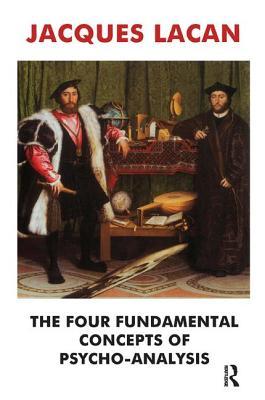The author's writings, and especially the seminars for which he has become famous, have provoked intense controversies in French analytic circles, requiring as they do a radical reappraisal of the legacy bequeathed by Freud. This volume is based on a year's seminar, which is of particular importance because he was addressing a larger, less specialist audience than ever before, amongst whom he could not assume familiarity with his work. For his listeners then, and for his readers now, he wanted "to introduce a certain coherence into the major concepts on which psycho-analysis is based", namely the unconscious, repetition, the transference and the drive. In re-defining these four concepts he explores the question that, as he puts it, moves from "Is psycho-analysis a science?" to "What is a science that includes psycho-analysis?"

The author's writings, and especially the seminars for which he has become famous, have provoked intense controversies in French analytic circles, requiring as they do a radical reappraisal of the legacy bequeathed by Freud. This volume is based on a year's seminar, which is of particular importance because he was addressing a larger, less specialist audience than ever before, amongst whom he could not assume familiarity with his work. For his listeners then, and for his readers now, he wanted "to introduce a certain coherence into the major concepts on which psycho-analysis is based", namely the unconscious, repetition, the transference and the drive. In re-defining these four concepts he explores the question that, as he puts it, moves from "Is psycho-analysis a science?" to "What is a science that includes psycho-analysis?"